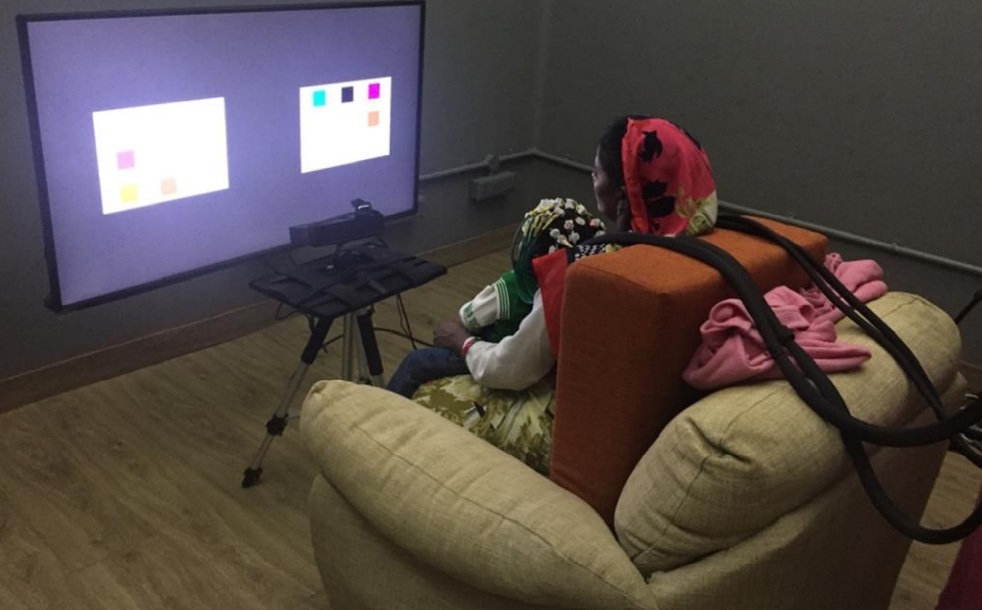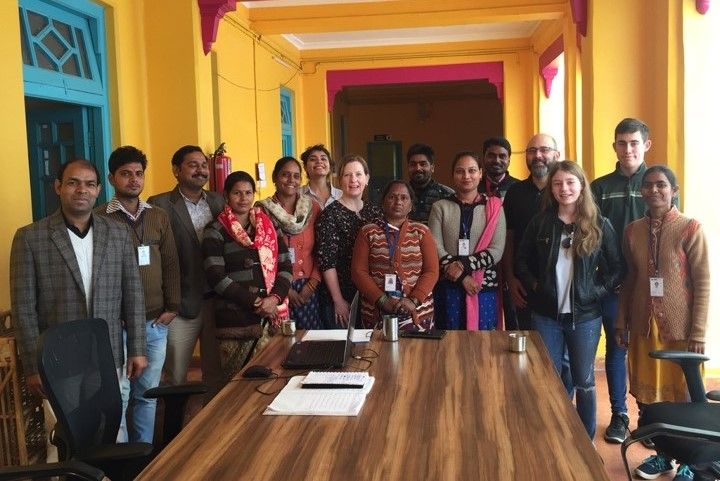INDIA Project
The INDIA (Infant Neural and Dyadic Interaction Assessment) Project is looking at early brain and behavioural development in 240 families from Northern India. We’re using brain measures, eye-tracking tasks, mom-child play sessions, and other assessments to look at early development in a non-Western culture. The question is whether working memory develops in a similar manner as in the UK and how cognition and the brain are impacted by poverty.
Click here for an overview of the study and included measures

The first big result from our work is that visual working memory – children’s ability to hold a set of coloured objects actively in mind – is impacted by poor air quality. We monitored air quality in homes across the two years of the study (roughly every three months). Air quality monitors were placed in the room the infant spent the most time in (e.g. a bedroom or a common room). Several prior studies looked at whether outdoor air quality impacts cognition in early development, but few links have been found.
Our study is unique in that we measured indoor air quality and we measured cognition in the first year of life.
Results showed that visual working memory scores in year 1 were lower in infants exposed to poor air quality. For context, the air quality was very poor – 3 to 4 times poorer than what has been reported in prior studies from Western cultures. The biggest influencer of air quality was cooking fuel – air quality was particularly poor when families were preparing meals, especially in households using cow dung for fuel. In addition to lower working memory scores, we also found that poor air quality was associated with slower visual processing speed (how fast infants looked back-and-forth between visual displays), and lower gross motor and problem-solving scores in year 2.

Our data suggest that global efforts to improve air quality could have benefits to infants’ emerging cognitive abilities. This, in turn, could have a cascade of positive longer-term impacts. Our results showing links between indoor air quality and cooking materials also suggest that efforts to reduce cooking emissions in homes should be a key target for intervention. This requires both increased availability of clean technologies and uptake of such technologies in rural households. Overall, we hope our findings can motivate both policymakers and families to improve air quality as this should positively boost the neurocognitive health of young infants
This work is being done jointly with the Community Empowerment Lab – our partners in this journey.

Our research is funded by:
Bill & Melinda Gates Foundation
Infant Brain Health in India: Assessing and Enhancing Working Memory Capacity via a Neurobehavioral Toolkit (OPP1164153), Bill & Melinda Gates Foundation, John P. Spencer (PI), 2016-2020, $1,834,202 total costs.
Measuring changes in functional brain activity with fNIRS, The Bill and Melinda Gates Foundation, John P. Spencer (PI), 2014-2016, $100,000 direct costs.
